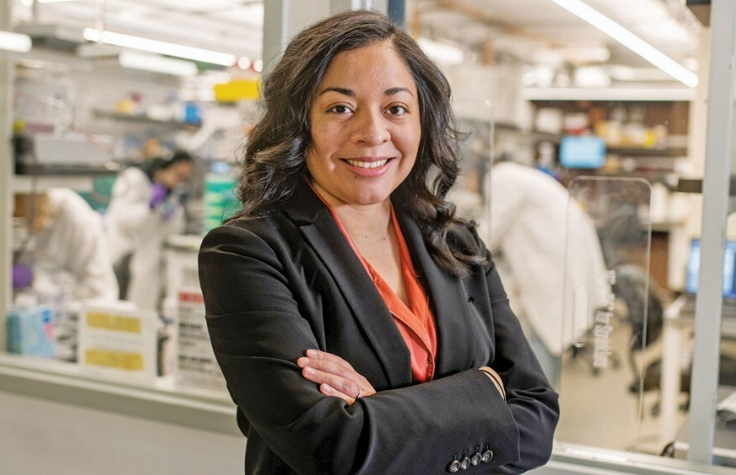
2022년 3월 21일
Whether we realize it or not, we leave clues to our health every time we use the bathroom.
The excretions we flush down the drain without a second thought offer a treasure trove of data and community health insight to Biobot Analytics. Biobot is the first company in the world to commercialize data from sewage. What we eat, the pathogens we harbor, and the drugs we use all end up in wastewater, and ultimately, that sewage contains a wealth of information about a community’s health.
For CEO and Co-founder Mariana Matus, working on wastewater is personal. Growing up in Mexico City, Matus saw that many rivers and lakes were polluted and dying off because much of the wastewater was dumped back into the environment without being treated. “I grew up witnessing the direct impact of human population and wastewater on the environment, and I wanted to be a part of the solution,” she says.
When Matus arrived in the US for her PhD in Eric J. Alm’s laboratory at Massachusetts Institute of Technology, Alm was working on the NIH Human Microbiome Project. At the lab, “we were used to thinking about poop as data that tells us something about the health of a person,” explains Matus. As an extension, she wondered: If we can learn about the health of a person by studying their poop, what can we learn about the health of a city by looking at a collection of human waste, in sewage?
Biobot Analytics spun out in 2017, as Matus was nearing the end of her PhD program. She and Co-founder Newsha Ghaeli, an architect, first developed Biobot to track the use of opioids and other high-risk substances in communities. The objective was, and still is, to shift the focus of public health officials who tend to look not at consumption rates but at the number of overdose deaths as the core metric—even though that data is tracked, logged, and shared inconsistently from city to city.
In 2020, when the COVID pandemic arrived, the company expanded and began focusing on infectious disease. Recently, Biobot partnered with Illumina to validate the Illumina COVIDSeq™ Assay on wastewater samples that Biobot provided.
During the pandemic, Biobot’s work proved that wastewater data can help predict COVID surges up to two weeks before hospitals report theirs. Biobot uses polymerase chain reaction (PCR) and RNA sequencing (via Illumina’s tools) to glean insights in the spread of disease, with the latter allowing scientists to monitor the spread of variants. “Before COVID, [wastewater] data was purely an academic exercise,” says Matus. But with Biobot’s data, hospitals in the Boston metropolitan area were able to take preventive measures before the Omicron surge by cutting back on their elective surgeries and increasing capacity in their emergency rooms.
So far, Biobot has worked with government agencies, including the US Department of Health and Human Services and the CDC, to implement its technologies. On a weekly basis, Biobot tests 200-plus community samples, which represents over 30 million people across 44 states in the US. Matus says the company has also begun working with employers and others who wish to monitor COVID outbreaks in their facilities.
Moving forward, Matus is hoping to bring Biobot testing to every state and large metropolitan area in the US. Eventually, she hopes that the company can collect data from cities and countries all over the world to become a source of global data on infectious disease and human health. “My greatest hope is that this data can move from being a novelty to being credible enough to eventually become the new standard to understanding human health,” she says.
To read more about surveillance of infectious disease through wastewater sequencing, click here.
To read more about identifying novel strains of coronavirus and other emerging pathogens, click here.


